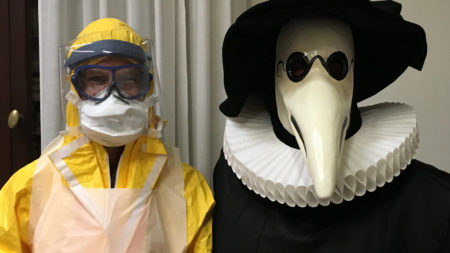Welcome to the final reading list post of 2021! As the year ends, I’ve continued reading books on baseball. But I’ve added to that some books on quarantine and tech politics.
Read on and enjoy!
Sheera Frenkel and Cecilia Kang – An Ugly Truth
And so, we have another book on Facebook. Does this one add anything new? Unlike most of the other materials, Frenkel and Kang focus not on Facebook’s early rise, but rather on the ways it navigates (and fails to navigate) choppy political waters during and after the 2016 election. They focus on how Facebook failed to protect against hate speech and aided the rise of the US far right.
We’re getting somewhere, then. I like the way Frenkel and Kang get at some of the core ideological issues with Silicon Valley. Mark Zuckerberg justifies many of his questionable decisions by appealing to the Valley’s native tech libertarianism. He says he doesn’t want to control or regulate any form of speech, and so on. And he appeals to the largely failed libertarian (and, ultimately, Millean) idea that, in the end, ‘good speech’ wins out in the ‘marketplace of ideas.’
Frenkel and Kang miss, though, the causal order of things. While Zuckerberg and co. certainly justify their decisions in these ways, these are hardly the causes of their decisions. In fact, Facebook does the things it does largely due to the need for endless growth.
Frenkel and Kang also tell a good story about the internal politics of Facebook. Lack of communication between Zuckerberg’s engineering side of the company and Sheryl Sandberg’s business side drives many of their biggest blunders. All in all, the book adds to the public narrative around Facebook.
Andrew Hoberek – The Twilight of the Middle Class
Let me start by admitting that I tend not to spend too much time deeply reading politics into major works of fiction. Are politics in there? Of course. But I try not to sweat it too much. People who read political movements into novels, in my view, tend to look a bit too closely at the subject. Sometimes a cigar is just a cigar, and all that.
That said, I thought Hoberek makes his case very well in these essays. His broad point in the book is that American literature in the 1950s and 1960s discussed economics to a much greater extent than most literature theorists think. In particular, authors discussed it by laying out some of the angst and ennui involved in white-collar work. Many white-collar workers saw themselves as dispossessed small business owners, and the literature treats them accordingly.
I learned a lot from Hoberek’s essays on Ayn Rand (Atlas Shrugged) and Ralph Ellison (Invisible Man), in particular, in this regard.
Geoff Manaugh and Nicola Twilley – Until Proven Safe
This history of quarantine – from its origins in plagues of the past through its uses in the early months of the COVID-19 pandemic – seems rather timely. It’s not exactly a shocker why one might be interested in a book like this right now.
Manaugh and Twilley do what they set out to do. They tour quarantine facilities, set out their major benefits and problems, and lay out some predictions about where quarantine will go.
They also clear up a frequent linguistic confusion, one that I myself fall into at times. Namely, they point out that the term ‘quarantine’ applies only to people who were exposed to a disease and don’t yet know whether they have it. When someone knows they have the disease, they go into isolation, not quarantine.
The more you know.
Emily Nemens – The Cactus League
This is the second of the two baseball novels I read recently, along with (below) one autobiography of a baseball player.
Nemen doesn’t quite give us a novel here. Instead, she writes nine stories around a connected set of characters and spring training baseball team. We learn a lot about the troubles faced by lots of people in the game, from a star player to a new player to the players’ wives and mistresses.
I think it comes off really well. Good baseball novels tend to seamlessly combine the game with life. Nemens pulls that off.
C.C. Sabathia – Till the End
Presumably lots of readers know I’m a Yankees fan. And I loved watching Sabathia pitch even before he did so for the Yankees. So, I looked forward to reading this one.
Perhaps predictably – for people familiar with him – Sabathia organized this memoir around his struggles with addiction, particularly alcohol addiction. We learn from Sabathia himself where the addiction began and how he learned to overcome it. We also learn quite a bit about Sabathia grew up, how he pitched, and how he handled the ‘decline phase’ of his career.
For anyone interested in any of these things, the book’s worth a read.
